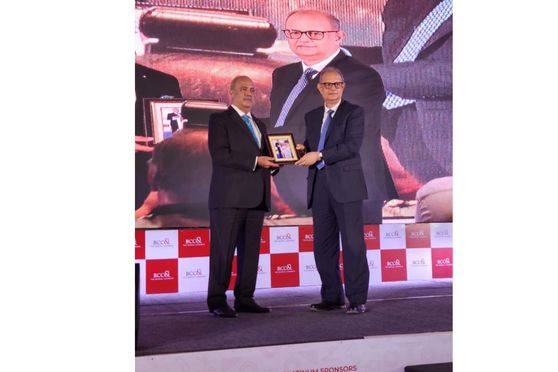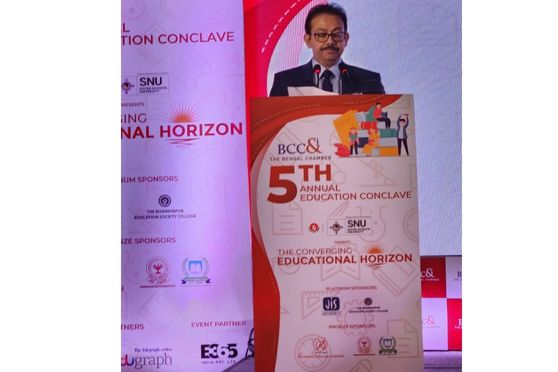The Converging Educational Horizon: 5th Annual Education Conclave held by BCCI


Education has many impacts on society, ranging from improving the quality of life of an individual to creating favourable conditions for the development of capable individuals who can transform society for the betterment of all.
An individual's success is highly dependent on their education along with their ability to apply what they learn in school to general practice. However, in the long run it's not only the information that brings a difference, but also the entire process, from overcoming obstacles to growing as a person. Keeping these perspectives in mind, The Bengal Chamber of Commerce and Industry (BCCI) hosted the 5th Annual Education Conclave 2022 on 19 November, 2022 at Kolkata. This year's theme was 'The Converging Educational Horizon'.
The event had detailed discussions on The National Education Policy 2020 (NEP 2020) and its implications for the school-to-college education system which was segregated into different panel discussions with leading educational experts at the Conclave.
Throwing light on the significance of the event, Mr. Subir Chakraborty, President, The Bengal Chamber and Managing Director & CEO – Exide Industries Ltd stated “During the pandemic everyone in our country and across the world realised that there happens to be multiple ways through which one can take education to the students, as physical classes were not possible and that was the only way to keep the learning going. Now that the pandemic is behind us we are trying to combine all the good facets of this system which we have learned, along with physical [classes] that has started now and hence we are calling it a convergence of education horizons. In today’s time, various methods are being adopted to educate the students.”
The digital divide refers to the gap existing between the different population groups and regions of a particular country. When it comes down to a developing country like India, this gap only widens as there still happens to be some of the remote villages and areas that till date do not have proper access to electricity and other modern technology. This barrier not only prevents children from the area from having proper access, but also prevents them from standing at par with children of other developed regions. The educational conclave, with the theme of 'The Converging Educational Horizon’, not only outlined this significant issue but also aims to present a well drafted plan to the higher authorities of our country for mitigating this gap.

Adding to the same Mr Satyam Roychowdhury Chancellor of Sister Nivedita University outlined, “We are targeting to make India literate by 2030 along with increasing the number of adult learners in the country. I strongly feel everyone in the country must have access to basic digital technologies for this particular change to happen. There are numerous students who live far away from the metro cities and are only deprived from the basic necessity of education. Our aim and mission through this conclave is to appeal to government authorities and big corporate houses to provide basic access to learners for the country to progress collectively. As a team we will also ensure that once the policy is presented to the government authorities each and every step is taken to make sure it is implemented”.
The digital divide in the education sector has had a profound impact on the overall growth, and career progress of the students of our country. Many communities and other business leaders have also been highlighting ways to address this issue at both local and national levels. This conclave held by the BCCI took place at a crucial time addressing the needs of the educators at crossroads.